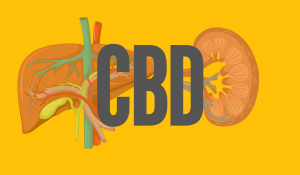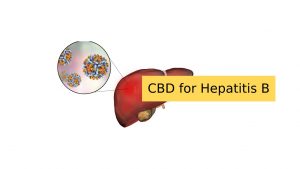In some patients, hepatitis A can cause symptoms that interfere with one’s overall quality of life and possibly result in long-term liver failure. Findings reveal that CBD may help manage symptoms of hepatitis type A and possibly inhibit the spread of the virus.
Hepatitis is a broad term that refers to several conditions that cause inflammation of the liver. Hepatitis A is one such condition and is one of the most common forms of hepatitis in the United States.
Type A hepatitis is a short-term yet highly contagious infection of the liver. It is typically spread through person-to-person contact and via contaminated food and beverages. Mild cases of HAV do not require treatment, and most infected individuals recover within a few weeks to a few months without accruing any permanent liver damage. However, in rare cases, Hep A can result in serious liver damage and eventual death.
In most cases, signs and symptoms of HAV do not appear until weeks after transmission. Moreover, many individuals never develop symptoms of the disease at all. That said, certain symptoms are indicative of hepatitis, including the following:
• Fatigue
• Loss of appetite
• Sudden onset of nausea and vomiting
• Abdominal discomfort and pain, especially on the upper right-hand side, near the liver
• Dark urine and/or clay colored stools
• Joint pain
• Low-grade fever
• Intense itching
• Yellowing of the whites of the eyes or skin (jaundice)
Some people experience only mild symptoms that last for a few weeks while others become intensely ill for months.
New research shows that CBD contains antiviral properties that can inhibit the spread of hepatitis B and C. However, there is limited research that shows the same or similar findings for HAV. That does not mean, though, that CBD should be discounted as a treatment measure for HAV patients. Numerous findings show that CBD for pain, nausea, itching and other common symptoms of hepatitis is highly effective. For instance, CBD stimulates appetite and reduces nausea, improves quality of sleep, helps manage joint and muscle pain, and stabilizes symptoms of depression, anxiety and stress. It also helps to improve cognitive function, which many people experience trouble with as hepatitis progresses and, more significantly of all, it may reduce liver inflammation.

Concerns About Potential Side Effects on Liver and Kidneys Despite its growing acceptance, concerns about CBD’s effects on vital organs like the liver and kidneys...
Read More
CBD oil is derived from either the hemp or the cannabis plants. It is touted as a cure for numerous medical conditions. While the two...
Read More
Hepatitis B is a serious liver condition caused by the hepatitis B virus (HBV) that affects hundreds of millions of people worldwide, including an estimated...
Read More
Hepatitis is a liver condition that results in inflammation. While it’s usually caused by viral infections, lifestyle choices, such as drug use or exposure to...
Read More
Hepatitis A is one of five forms of hepatitis. It’s typically caused by a viral infection. Often, the source of the virus is the ingestion...
Read More
HBV and HVC are the two most common types of hepatitis. CBD oil may help reduce viral loads, modulate the immune response and address symptoms...
Read More